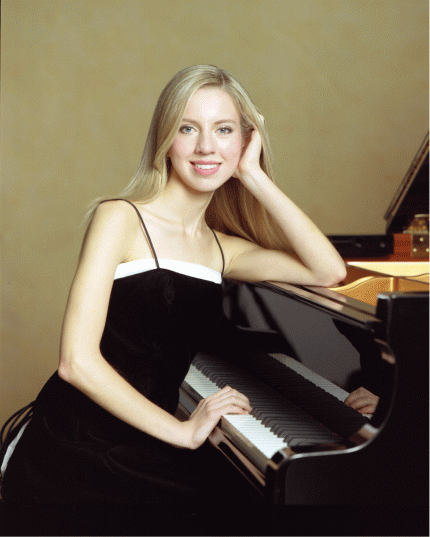Kalmar, Paremski and Grant Park Orchestra take flight with life stories

A pair of contrasted autobiographical works made up the main part of Friday night’s concert at the Grant Park Music Festival led by Carlos Kalmar: a tone poem by Richard Strauss, and a genre-traversing piano concerto by an American composer.
But first, as they say in radio, the concert led off with the overture to Ermanno Wolf-Ferrari’s opera Il segreto di Susanna (“The Secret of Susanna”). Susanna’s secret is that she smokes cigarettes, the malodorous evidence of which leads her husband to suspect gentlemen callers are visiting Susanna when he is away.
Hugely successful a century ago, Wolf-Ferrari’s 1909 comic opera is rarely heard today (though the enterprising Odyssey Opera revived it last year in Boston). The light-hearted spirit of the work is reflected in its delightful overture, a charming, wonderfully witty four-minute romp. Kalmar led the Grant Park Orchestra in a vivacious, rollicking performance.
The first of the evening’s main works inspired by each composer’s life experiences was Paul Schoenfield’s Four Parables, with soloist Natasha Paremski.
In this 1983 piano concerto, the Detroit native draws from impressions of personal acquaintances and social lore, largely with a dark, even ghoulish black humor. The first section, “Rambling Till the Butcher Cuts Us Down,” concerns an aged quadriplegic murderer and the debate surrounding his release from prison, cast in a sardonic uptempo burlesque.
“Senility’s Ride,” paints a Vermont neighbor of Schoenfield with memory issues who reflects on his youthful dancing days. “Elegy” was inspired by a young friend, who due to the influence of “religious fanatics,” as the composer puts it, refused medical treatment and died needlessly. The finale concerns a mother who punished her children by getting rid of the family dog. Despite the bleak scenario, “Dog Heaven,” offers a mercifully light-hearted closer, depicting a whimsical canine afterlife with ample bones and fire hydrants for all.
As in many of his concert works, Schoenfield blends jazz elements and traditional classical form with great skill and, often, uninhibited scoring. Four Parables is undeniably entertaining and effective even if the overall effect is less one of substance than of souped-up, self-consciously showy brilliance.
Natasha Paremski made an impressive Grant Park debut at last summer’s opening concert, and Friday night the young pianist was even more spectacular, seeming just as at home in Schoenfield’s jazzy confection as in Tchaikovsky. The solo part is intensely demanding and Paremski delivered the goods, with a sizzling, fearless performance. Her power, speed and accuracy were astonishing, and the Grant Park Orchestra’s playing was on the same full-throttle level under Kalmar’s fiery direction.
Ein Heldenleben (“A Hero’s Life”) is, of course, a much better known quantity. Some see the 35-year-old Richard Strauss’s tone poem depicting himself as the title hero as a Trumpian exercise in untrammeled egotism. But the composer’s quirky humor, rich melodic vein and emotional sincerity ultimately win the day and Heldenleben remains one of Strauss’s finest works.
His autobiographical tone poem is also one of the most tortuously difficult works in the canon with acrobatic challenges across every section and for nearly every principal. It’s a testament to the dedication and gifts of the Grant Park musicians that they delivered such a polished, cohesive and fully committed performance on such a humid, muggy evening.
Kalmar clearly has sympathy for Straussian style and the hero’s theme went with great striding confidence, built on deep sonority from the lower strings. The hero’s adversaries–Strauss’s withering and hilarious depiction of music critics—made effective contrast with its wimpy inconsequential woodwinds and pompous tuba.
In the celebrated violin solos that embody the hero’s companion, concertmaster Jeremy Black’s pure-toned rendering painted a less formidable helpmate than many, though one with greater delicacy and charm. The ensuing satiric battle made full impact with its raucous off-center fanfares, alarums and excursions. Kalmar elicited fine transparency even in the most loudly scored moments, leaving one floored anew at the craft in which Strauss seamlessly weaves the hero and companion themes in and around the battle.
For an alfresco concert subject to divers urban distractions, Kalmar lived dangerously in the long final section, drawing out the music with refined, strikingly hushed dynamics. The gamble paid off with an elegant and beautifully turned closing dialogue between Black’s violin and principal horn Jonathan Boen, the performance ending in a glowing coda of solace and contentment.
The program will be repeated 7:30 p.m. Saturday. gpmf.org
Posted in Performances




